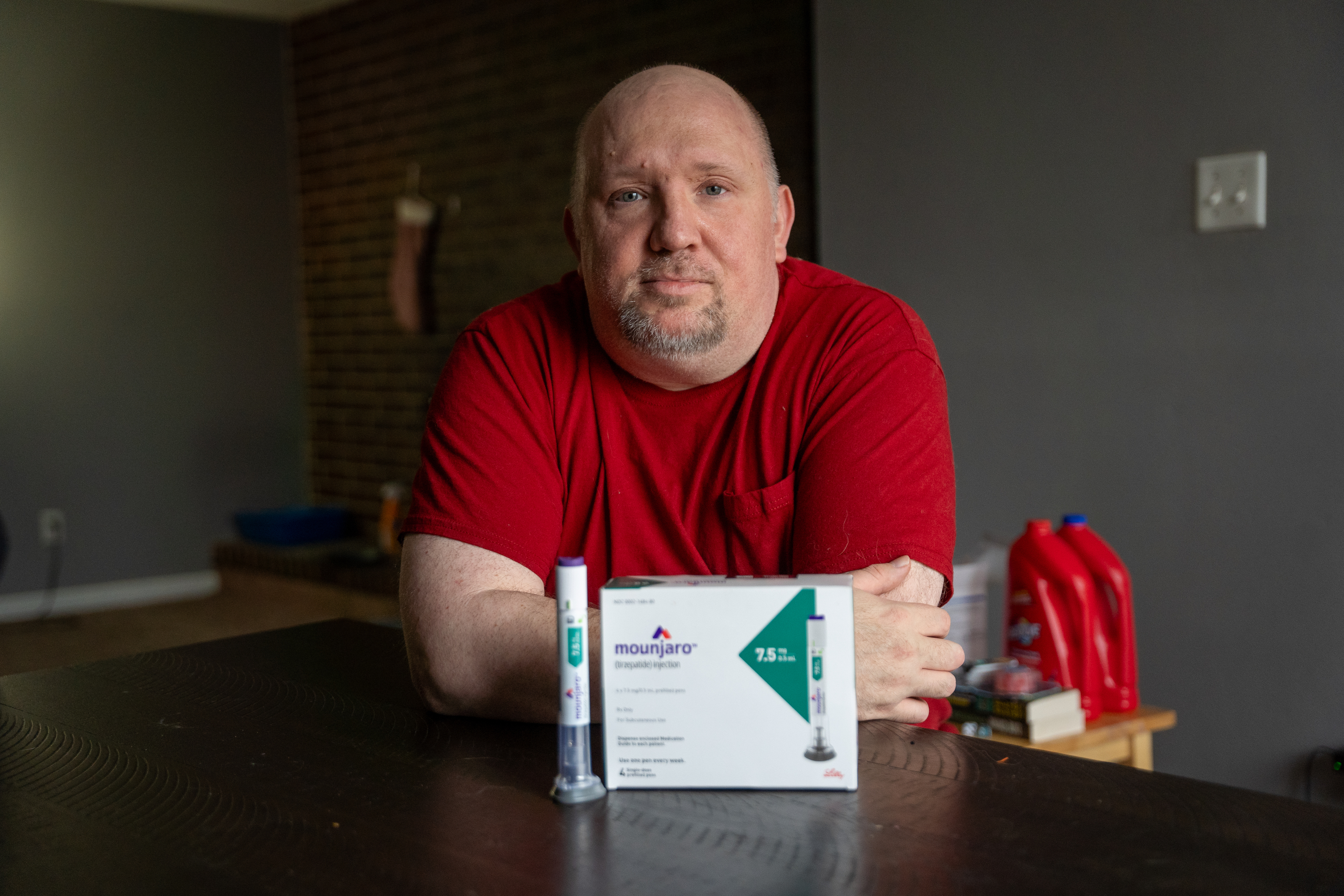Christopher Marks noticed an immediate improvement when his doctor prescribed him the Type 2 diabetes medication Mounjaro last year. The 40-year-old truck driver from Kansas City, Missouri, said his average blood sugar reading decreased significantly and that keeping it within target range took less insulin than before.
But when his doctor followed the typical prescribing pattern and increased his dose of Mounjaro — a drug with a wholesale list price of more than $1,000 a month — Marks’ health insurer declined to pay for it.
Marks had Cigna insurance that he purchased on the federal health insurance marketplace, healthcare.gov. After two appeals over a month and a half, Cigna agreed to cover the higher dose. A few months later, he said, when it was time to up his dose once more, he was denied again. By November, he decided it wasn’t worth sparring with Cigna anymore since the insurer was leaving the marketplace in Missouri at the start of this year. He decided to stay on the lower dose until his new insurance kicked in.
“That is beyond frustrating. People shouldn’t have to be like, ‘It’s not worth the fight to get my medical treatment,’” Marks said.
The process Marks encountered is called “prior authorization,” or sometimes “pre-certification,” a tool insurers say they use to rein in costs and protect patients from unnecessary or ineffective medical treatment. But the practice has prompted backlash from patients like Marks, as well as groups representing medical professionals and hospitals that say prior authorization can interfere with treatment, cause medical provider burnout, and increase administrative costs.



This was great.
Same crap happens with diagnostic and surveillance like tumor markers pre and post cancer treatment. Fun times.